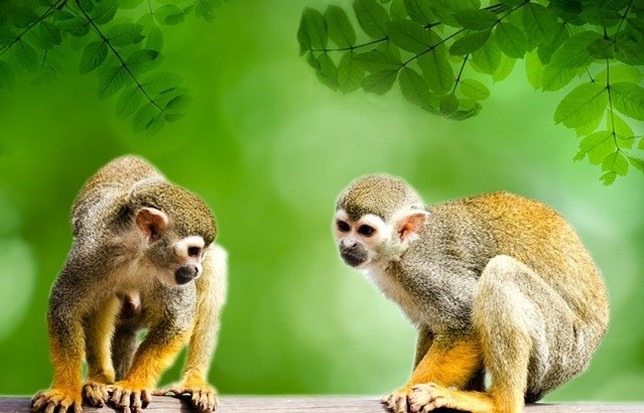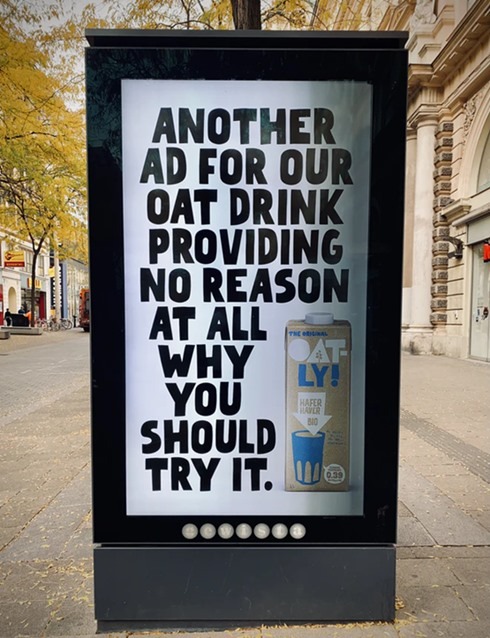
As a vegan living in Vienna, I have tried just about every plant milk known to man over the last four years.
In the last year, though, I had narrowed my choices down to Oatly — the Swedish plant milk company that, due to a good marketing campaign and a decent product, is currently taking the world by storm.
In the last few months, however, I have not only stopped buying Oatly in Austria, I have stopped buying plant milk altogether.
Now I take my coffee black instead.
My initial decision to cut down on the plant milk I was drinking was due to both the drink itself and its packaging not being particularly good for the environment, no matter how companies like Oatly choose to spin it.
After all, when the emissions released and the water and land used in order to manufacture Oatly and its box are much higher than just not drinking plant milk at all, I decided to take that route instead and markedly cut down my consumption of it.
My move away from buying plant milk altogether and Oatly specifically, however, was triggered by the news last year of an extremely large investment in Oatley from American investment management company The Blackstone Group.

The Blackstone Group’s investment in Oatly
You know the world is in a mess when the self-professed ‘sustainable’ oat milk brand Oatly has sold out their values to such an extent they accepted a $200 million investment from The Blackstone Group last year — a company known for its ties to Trump, and its ownership of businesses involved in Amazon deforestation.
Throw in that Motel 6, another Blackstone-owned company, willingly handed over their guest lists to U.S. Immigration and Customs Enforcement, and that the group is widely known in America for its abuse and evictions of working class tenants after the 2008 financial crisis, (among other ethically questionable business decisions) and, frankly, it will be a cold day in hell before I ever buy another box of Oatly in Austria.
Or anywhere else for that matter.
The Blackstone-Oatly saga
The Oatly saga began in mid-July last year when Blackstone trumpeted their $200 million investment in the plant milk company.
That investment immediately gave Blackstone either a 7 or 10% ownership in the company, depending on the sources you believe.
Not long afterwards, the Internet went crazy with vegans, eco-friendly shoppers, environmentalists and those opposed to the businesses practices of The Blackstone Group outraged Oatly would ever accept an investment from a company like that.
Blackstone’s involvement in the deforestation of the Amazon was mentioned by angry consumers again and again (Blackstone owns/partially owns several Brazilian companies that are cutting down the Amazon and converting it to farmland. These companies are also building roads deep into the rain forest. Roads that will make mining, logging and massive deforestation even easier).
When the dust had cleared and Oatly not only stood by their decision but doubled-down on it, for me, and for many other consumers, we were left realizing if we continued to buy Oatly oat milk we were directly subsidizing Blackstone’s ecologically-horrifying business practices.
For me, and for many others, that is something we just will not do.
Not when Oatly’s decision to take money from Blackstone, and to thus share their profits with them, potentially subsidizes further destruction of the Amazon rainforest, the world’s most important and most bio-diverse rainforest, and one with tens of thousands of species currently at risk of extinction.

Oatly’s defense of The Blackstone Group’s investment
Of course, to be fair to both sides, it is also necessary to include Oatly’s defense of their acceptance of the Blackstone investment.
An investment, by the way, that could net Blackstone up to $40 million in profit in their first year of investment alone, and one that pushed Oatly’s value up to around $2 billion soon after its completion.
And an investment that, if Oatley’s own statement about their involvement with Blackstone is to be believed, they were not offered but actually sought out themselves.
You can read Oatley’s statement on their website about ‘climate and capital’, but in essence it equates to (and I paraphrase) “We needed to take money from a company that is directly responsible for the destruction of the Amazon rainforest so that we could persuade other large companies to invest in us as well.
If we can do that, other major investors that are also investing in companies involved in the destruction of the planet may invest in us instead”.
Or as they specifically stated:
If we ever want to have a chance of reaching the global climate goals of cutting the greenhouse gas emissions by 50% before 2030 and reach net zero emissions by 2050, we need to speak a language that the capital markets can understand. Doing so can potentially trigger a massive flow of capital out of gas, oil and soybean production in the Amazon and into greener projects and companies.
Naive at best, and against every principal Oatly has been espousing since they began selling oat milk in the 1990s, as well as against the principles and morals of many of their customers.
And all done so Oatly could raise the capital to, in their words, “allow us to build factories in Europe, the US and in Asia…”
What that says to me, someone who does look at things in black and white when it comes to the destruction of the planet because, let’s face it, all these shades of grey have gotten us into the mess we are now in, is that Oatly decided the money they could obtain by getting into bed with a company heavily involved in environmental destruction was far more important than ethics.
Because, for them, it was a ‘means to a potential end’.
A slippery slope so many companies nowadays sadly decide to head down, with few achieving the results they expect.
After all, as the famed Irish playwright George Bernard Shaw once said — “Never wrestle with a pig. You both get dirty and the pig likes it” — something the executives of Oatly have apparently yet to learn.
